Cork GAA: New football rules resounding success for clubs and referees
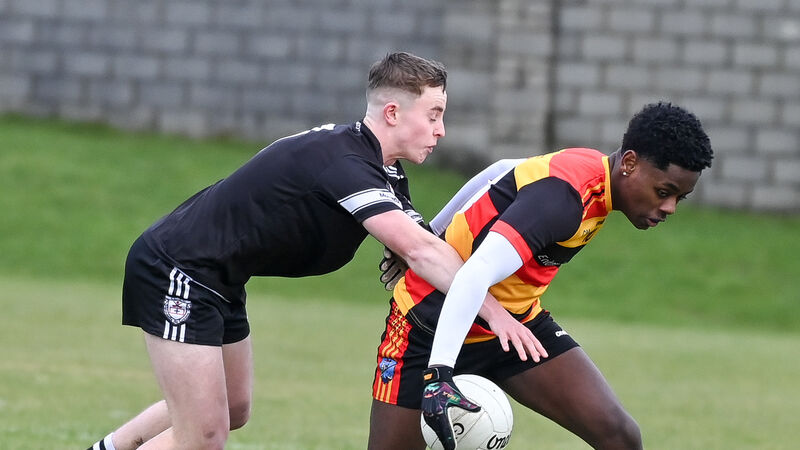
St Colman’s Yosef Hallahan is tackled by Midleton's Darragh Egan, during their East Cork U21 B Football Championship clash at Cloyne.
It’s been a testing few weeks for referees throughout the country. Demands have been placed on them, and as a whole – adaptation to the new rules seems to have commenced on a positive footing.
The inter-county scene got the first round of viewing with the return of the national football leagues. A big success across the board, it must be said. Cork’s dramatic win over Westmeath in the third round of fixtures is further proof of that.
Next up to be analysed under the microscope were the U21 fixtures. We’ve now completed two weeks of the competition. But despite the challenges brought on by local club games, it’s been another resounding success.
At least that’s the view of Imokilly’s referee administrator Ger Sweeney, and the referees of east Cork.
“When all these rules landed on us, from a refereeing point of view I was a little bit concerned because it was a lot to take in,” he begins. “It was grand for the inter-county guys but at local club level, pitches might not be lined properly with not as much help from fourth officials or linesmen.
“We had a meeting with the FRC (Football Review Committee) and then following on from that we had six nights throughout the county with Jim McEvoy ably assisted by Conor Lane, David Murnane, Johnny Ryan – three inter-county referees. Those nights were brilliant, everyone was raring to go then.
“Then last week, we had the [first] six U21 championship matches, I spoke to all six referees after the games, and they were all very positive about it. They all had good help.”
The rule changes have made the game far more entertaining – and not just for spectators. It’s more enjoyable for referees too.
“The solo and go is a very big one that I love,” Sweeney says. “As well the dissent rule, any dissent it’s moved all the way up the field so that’s going to get a bit of respect then for referees.
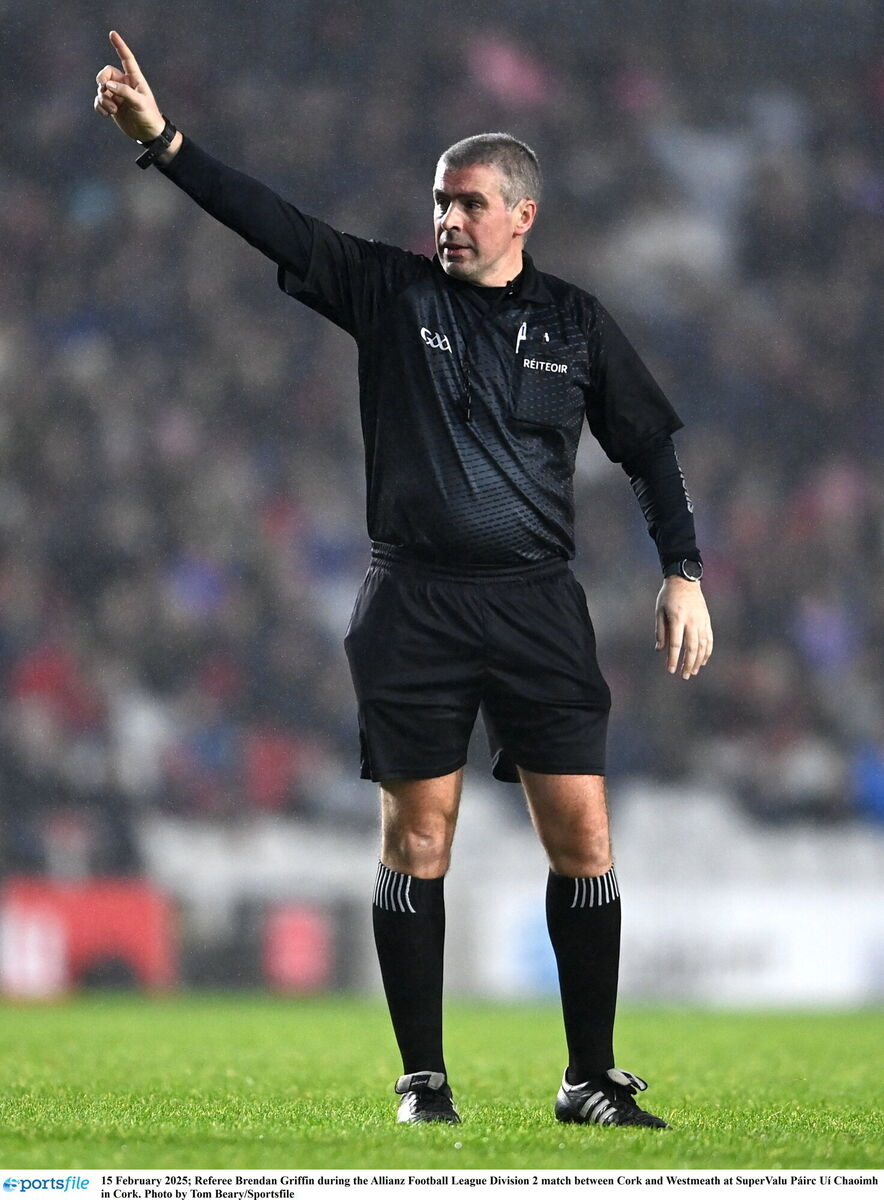
“The advantage rule as well, there is no longer a four-second time limit on the advantage rule.
“Another one I like is the black card for the third and subsequent players in. You have these brawls and players are ready to go in, before they were afraid to give the red, but now they will give the black.
“That’s the reason it was brought in. A lot of positivity there.” There was one U21 fixture that stood out for Sweeney took place during the first weekend. With backchat coming from the sideline early on, the referee dished out a yellow card and brought the free all the way up the pitch.
That was that for the night.
“I think the disciplinary changes will be very good.
The stricter approach to dissent benefits players too, even if they won’t initially feel that way.
It diminishes the stop-start nature that has crept into football and makes the role of being a referee more appealing. More referees mean better referees.
A bigger pool benefits everyone.
“It might lead to other younger referees coming on board.
“I hope in future some of those dissent rules will be carried across to the hurling. There’s no reason not to, I’d love to see it.” The buy in from referees and players wasn’t the only positive either though.
Sweeney was delighted with the effort hosting clubs have put in so far, given the transitional period that’s in it for everybody.
“I was very happy, all the clubs in east Cork had the pitches immaculately lined,” he remarks. “All the referees had two or three linesmen with them and policed that fairly well. Even speaking to a few clubs, they’re all buying into it.
“I think football needed something to be done, and it’s very positive. Most referees are bursting to go again.
“There might be two or three little glitches that don’t stand the test of time when they review it, the handing the ball back in full maybe. I think that one might be a bit of a test, but it was a very positive start.”
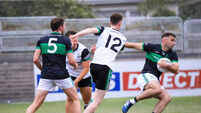



![IMG_2047[1].JPG Glanmire junior footballers still in with chance after beating Bishopstown](/cms_media/module_img/9559/4779758_1_teasersmall_IMG_2047_5b1_5d.jpg)
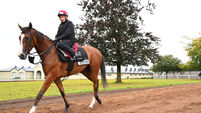
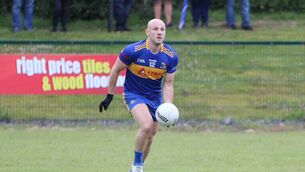



 App?
App?







